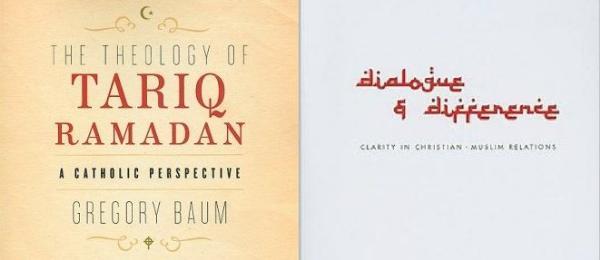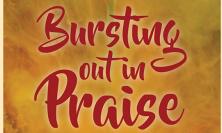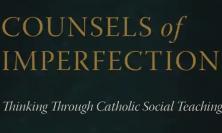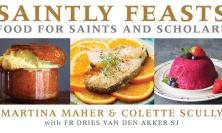Gregory Baum
Novalis, 2009
178 pages
ISBN: 9782896460793
With Christians of all varieties becoming more interested in understanding Islam these days, it’s a real cause for gratitude to find a high quality but accessible treatment of the many important issues which arise both in dialogue and in neighbourly relations between people of the two faiths. English-speakers have long been able to draw on the remarkable work of Kenneth Cragg, an Anglican Islamicist and distinguished theologian. Specifically Catholic contributions, however, to the area have been thin on the ground. Christian Troll is a German Jesuit Islamicist with decades of eminent scholarship behind him. The German Bishops look to him for guidance in this complex area of the Church’s life and he is one of a handful of figures to whom Pope Benedict turns when he wants to know more about the Muslim world. Now, thanks to this excellent translation of a book of his by David Marshall, an Anglican priest who is himself a former student of Troll’s, we English-speakers have access to some of his wisdom and experience.
Troll takes us through a series of chapters, each addressing questions that educated Christians typically ask about their relations with Muslims: What am I to say when a Muslim asks me what I think about Muhammad? What is the place of truth in the dialogue situation? How does the Qur’an compare to the Bible? What is the relationship between Church’s mission of proclamation and dialogue? What of the prospects for human dignity in contemporary Islam? Is it really helpful to think of Muslims and ourselves as children of Abraham? The chapters are short and Troll succinctly highlights the most important points relevant to each issue. His encyclopaedic knowledge of Islam enables him to offer pertinent examples from the many divergent tendencies which make Islam so baffling to outsiders, so tempting to simplify with loose generalisations.
More valuable, though, than the pressing nature of the questions Troll answers is the quality of what he writes. This is the sort of text in which every word is backed up by years of painstaking study and encounter; you can count on its having been carefully weighed and judged. In an area with more than its fair share of confusion and controversy, he can thus be relied on to provide authoritative, trustworthy answers. And much of Troll’s study and experience makes this book particularly relevant to the British context. He is, in some ways, more at home with the sub-continental Islam so present in the UK than among the Turks who constitute the principal Islamic community in his native land. Indeed, Troll’s groundbreaking doctoral work in the 1970s was on the modernising Islam of Sir Sayyid Ahmad Khan, who did more than anyone to update the education of India’s Muslim population.
A short book like this has its limitations, of course. For instance, with a very few exceptions Troll confines his analysis to Sunnism, the majority tendency in world Islam. His clear theological positions are doctrinally orthodox and draw on recent magisterial documents; this is not the place to look for a speculative theology of religions. His ethical positions are equally robust and it would be interesting to hear them argued for at greater length. He takes terrorism seriously as a political challenge and wants to see a global alliance of religious believers to combat it at every level. But he includes a trenchant demand for western leaders to stop duplicitously supporting authoritarian governments in the Islamic world while calling for human rights and democracy. Fighting terrorism also means pursuing justice for the Muslim world.
Such ‘criticisms’ are really just another way of saying that it would be good to hear more. When it comes to an analysis of trends in contemporary Islamic thought, Troll appears to have in mind a well-established paradigm which takes the fundamental dynamic at work to be a clash of traditional and liberal approaches. His repeated methodological option is to show the disparity between ‘fundamentalist’ attitudes and more progressive ones, hoping that the latter might eventually triumph. This has the great advantage that it makes these latter tendencies known, thus balancing the faulty perception that extremism is the norm. But, taken without nuance, it could also oversimplify matters; Troll gives us enough indication of the variety of schools of thought available to guard against this. The various versions of progressive Islam make different gestures towards the tradition with significant consequences, as we shall have occasion to note below in the case of Tariq Ramadan.
One of Troll’s emphases is the capital point that it cannot be a tradition, let alone a book, that will determine the trajectory of the Muslim future but Muslims themselves and the decisions they take about how to read it. It is not unusual for non-Muslims to be exercised by the content of the Qur’an and in particular those few verses which have been taken as incitements to violence. Troll rejects the question they so often pose of whether Islam can come to a new self-understanding, asking instead whether ‘Muslims as a faith community will adjust themselves to the wider world with its commitment to human rights’ or seek to subordinate the world to Islam (p.45).
But Troll’s commitment to a liberal political settlement does not mean that his Christian theology proceeds from a particularly liberal point of departure. Many a pluralist theologian of religions has begun a sentence like this: ‘Christians must take into account that they do not possess a monopoly on truth...’. Not so many continue with Troll’s insightful comment: ‘rather, they should think much more in terms of the truth having taken possession of them.’ (p.51) Troll reminds us that just as Catholic theology does not build its contemporary tolerance and will for dialogue on liberal political foundations, labouring long and hard instead to discover the Gospel’s own requirement that we respect human rights in today’s world, so Islam needs to find its own reasons for promoting human dignity and freedom.
Troll is above all keen for his readers to see with clarity the nature of the Christian mission to Muslims. Most importantly of all, he wants to help Christians to reflect on how they might most effectively witness to their faith in front of Muslims. As he points out,
the task of giving a detailed and reasoned account of the Christian faith in response to the particular questions raised by Muslims, without getting caught up in distorting polemics or too narrow an apologetic approach, is one that Christians so far have scarcely begun to tackle, at least within the Catholic Church. (p81)
Modestly, he omits to plug a unique website which he himself has made available for just this purpose.
Another Catholic theologian, this time a Canadian, has recently published a provocative book seeking understanding between Catholics and Muslims. Gregory Baum was a peritus (an adviser) at the Second Vatican Council and was particularly involved in the ecumenical and interreligious questions raised there with such great consequence. He has written regularly since then, though, and now in his late eighties has launched into a discussion of the contemporary Swiss Muslim thinker, Tariq Ramadan.
Ramadan is a controversial figure who inspires admiration and suspicion in roughly equal measures. He is by no means an uncomplicated choice for a Catholic theologian in search of a dialogue partner but you can tell that Baum relishes this chance to stand up for him against neo-con calumnies, confounding some of the manifestly unjust accusations made against him whilst at the same time mapping out some common ground.
Baum manages to do this by distinguishing Ramadan’s project from that of other Islamic reformers. He notices that, on the one hand, Ramadan has a fundamentally conservative intent: unlike many modernisers, he wants to retain as much as possible of the method and content of the traditional Islamic law schools. On the other, Ramadan also brings to bear a reformist hermeneutic to actualise that tradition, enabling Muslims to take the modern world seriously and to continue to strive for justice. Baum sees Ramadan’s attempt to hold on both to the logic of tradition and to the gifts of the Enlightenment as mirroring the post-conciliar theological enterprise in which he has been so closely involved.
A particularly sensitive example of Ramadan’s approach is seen in his 2005 call for a moratorium on the use of the ‘hudud punishments’ (the executions, floggings and amputations prescribed in traditional religious law for certain serious offences). Unlike the liberal Muslims, Ramadan does not consign these, to western eyes, outdated and barbaric penalties to the dustbin of religious history; instead, he insists that they should always remain part of the Islamic legal framework, while judging them to be quite inappropriate in conditions currently obtaining, the demanding conditions required for their implementation being all but impossible to meet. That desire to preserve the integrity of the tradition is something that many Catholics can indeed recognise, even as they are disturbed by the example. Yet there is a significant difference: in Catholicism, for various reasons, the kind of balancing act which Baum so values is mainstream. Ramadan, however, is one voice among many and it is very far indeed from being clear that his modus operandi will prevail.
The great difference between Baum and Troll is that the latter has spent his life in meticulous study of Islam and knows the tradition intimately. Baum is, not surprisingly, on much less certain ground and his several errors (such as the consistent mistransliteration of the Arabic word tawhid) inevitably undermine the authority of his work. Still, no-one would look to him for infallible Islamic scholarship; what they might be after is to see how a radical theologian of the Council is now facing some of the challenges faced by Catholicism in North America and elsewhere. Baum shows us both why Troll is such an important resource for our Church and why we should heed his advice and engage vigorously and positively with what has become the West’s second faith.
The reviewer, Damian Howard SJ, is a British Jesuit currently completing postgraduate research in contemporary Islamic thought and a member of Thinking Faith’s editorial board.
![]() Find Dialogue and Difference on the Orbis Books web site
Find Dialogue and Difference on the Orbis Books web site
![]() Find The Theology of Tariq Ramadan on the Novalis web site
Find The Theology of Tariq Ramadan on the Novalis web site






